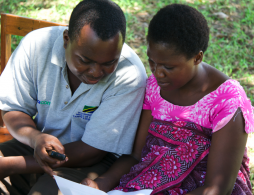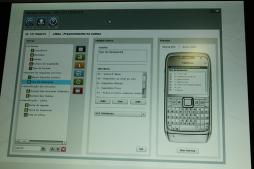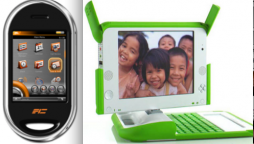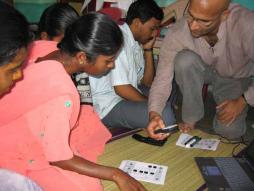ict4d
Posted by LeighJaschke on Jul 14, 2009
ICT4D 2.0: The Next Phase of Applying ICT for International Development data sheet 1883 Views
Publication Type:
Magazine or newspaper article
Abstract:
Use of information and communication technologies for international development is moving
to its next phase. This will require new technologies, new approaches to innovation, new
intellectual integration, and, above all, a new view of the world’s poor. The phase change from information and communication
technologies for international
development (ICT4D) 1.0 to ICT4D 2.0 presents
opportunities for informatics professionals
and offers new markets for ICT vendors.
It also brings new challenges to our established methods
of working and emphasizes the need for new expertise
and new worldviews. Harnessing digital technologies in
the service of some of our world’s most severe problems
requires understanding these changes. Before proceeding,
though, we must ask why we should give priority to
ICT application for the poor in developing countries.
Posted by LeighJaschke on Jul 08, 2009
ICT for Disaster Management data sheet 2832 Views
Abstract:
vi
Since the December 2004 Indian Ocean tsunami,the Asian Disaster Preparedness Center (ADPC)
together with the International Telecommunication Union (ITU) have taken initiatives to study the
current situation of emergency communications in the Asia-Pacific countries and to give
recommendation on national emergency telecommunication and national early warning system
setups.Assessments were conducted in Bangladesh,Maldives and Sri Lanka on these emergency
communication systems. To enhance early warning systems, ADPC, under the Indian Ocean
Early-Warning System programme, also introduced the Tsunami Alert Rapid Notification System
Programme with emphasis on robust ICT systems to disseminate information and warnings from
the national to the community level.
In line with this, the following is an e-Primer brought to you by the United Nations
Development Programme’s Asia-Pacific Development Information Programme (UNDP-APDIP) and
the Asian and Pacific Training Centre for Information and Communication Technology for
Development (APCICT).I am confident that this e-Primer will play an effective role in enhancing
and propagating awareness of various ICT tools and will serve as a guide to policy makers,
disaster management practitioners and media personnel on how best to use ICT tools to
successfully counter the threat of disaster.
Posted by KatrinVerclas on May 09, 2009
I am a member of the Working Group of the Open Mobile Consortium, a now publicly launching collaboration among organizations around the world focused on developing open source mobile solutions for social impact and change.
There have been many myths surrounding open source software and little conversation in this field why open source software is important and successful, especially in the context of developing countries and in the field of mobiles for development. I'd like to debunk some of these myths and clarify why the Open Mobile Consortium is focused on open source mobile solutions that build on, and talk to one another. I also invite comments for anything that I have missed or differing point of views.
Firstly, No Dogma
Posted by KatrinVerclas on Mar 03, 2009
We are looking for your mobile application! MobileActive.org is collecting detailed information about mobile applications used for health, social development, advocacy, education, civic media, human rights, and other civil society areas.
If you have or are developing a mobile application used in social development, please complete this survey! There is currently no comprehensive database of mobile applications for social development available and we want to change that.
So, we need your help in building as-close-to-complete Mobile Applications Database, and learn more about your mobile apps used for social development. Here is the survey!
We will share all applications widely on this site with organizations, press, and interested donors.
P.S. Feel free to forward to relevant organizations, lists, and individuals!
Photo: Mobile application at MobileActive08
Posted by KatrinVerclas on Jan 26, 2009
The ongoing debate over the value of cheap and open laptops for users in developing countries as opposed to mobile phones continues, most recently with a post from Cory Doctorow in the Guardian UK. The One Laptop Per Child (OLPC) initiative, the most visible and audacious of the low-cost laptop projects, has been in the news recently for cutting half its staff and severely scaling back and refocusing its operations. OLPC had originally promised to promote economic development by distributing free computers to two billion children in developing countries.
Doctorow in the Guardian argues what we all believe in -- that information technology is an essential ingredient to economic development. He notes:
Posted by KatrinVerclas on Dec 22, 2008
There is a fascinating discussion about the fuure of mobile apps going on over at Change.org. Nathanial Whittemore started it all with a hopeful and visionary blog post on how mobiles will be changing the world. The discussion thread turned into a thoughtful discussion on mobile appplications and how this emerging eco-system of tools scales and interoperates to maximize resources.
Isaac Holeman, working on (and twittering about) MobilizeMRS, points out that "interoperability is a very important point..where it's not necessary for any one installation of anything to scale completely because data can move into or out of any system. Mobile health stuff is so new that interoperability of medical data has hardly been considered, to my knowledge. With MobilizeMRS, one of the primary reasons we want to interface with medical records systems is that a huge amount of work has already been done to promote medical record interoperability with standards such as HL7."
Posted by drenched85 on Aug 27, 2008
Strengthening ICT4D Research Capacity in Asia (SIRCA) Programme is announcing a call for grant proposals.
The SIRCA Programme seeks to identify research leaders, and to facilitate their development through the support of research grants. The awards are focused in the area of Information and Communications Technology for Development (ICT4D or ICTD) in Asia. There are three (3) categories of funding – 20,000 Singapore Dollars (SGD), 26,500 SGD and 33,000 SGD. Project proposals exceeding 33,000 SGD must specify the source of additional funds.
The program is seeking emerging researchers based in Asia who are relatively new to ICTD research and interested in undertaking theoretically-based and methodologically rigorous research. Additionally, applicants need to indicate how they benefit from concerted capacity building exercises, including a mentorship arrangement.
Posted by Esther Nasikye on Aug 24, 2008
Agriculture is what keeps economies in most developing countries alive. However, farmers in many countries face major challenges. In an age of global markets, they are forced to enhance production, improve the quality of their yield, and access markets within short timeframes. Small-scale farmers especially have traditionally been deprived of weather and crop information, have been at the mercy of middlemen, and have lacked timely market price information to negotiate the best deal. This has chancged with the a connect people advent of widespread telephony that connects farmers wiith markets, weather, and other data.
Governments, non-governmental organisations (NGOs) and international donors are taking advantage of this technology revolution to help farmers access market information. They are convinced that low-cost access to agricultural prices could yield enormous payoffs.
In Uganda, the Women of Uganda Network (WOUGNET), a local NGO, is helping over 400 rural farmers in the Apac District in Northern Uganda, access information on market prices through text messages (SMS).



![image[38].png](../../files/imagecache/blogimage/image[38].png)

